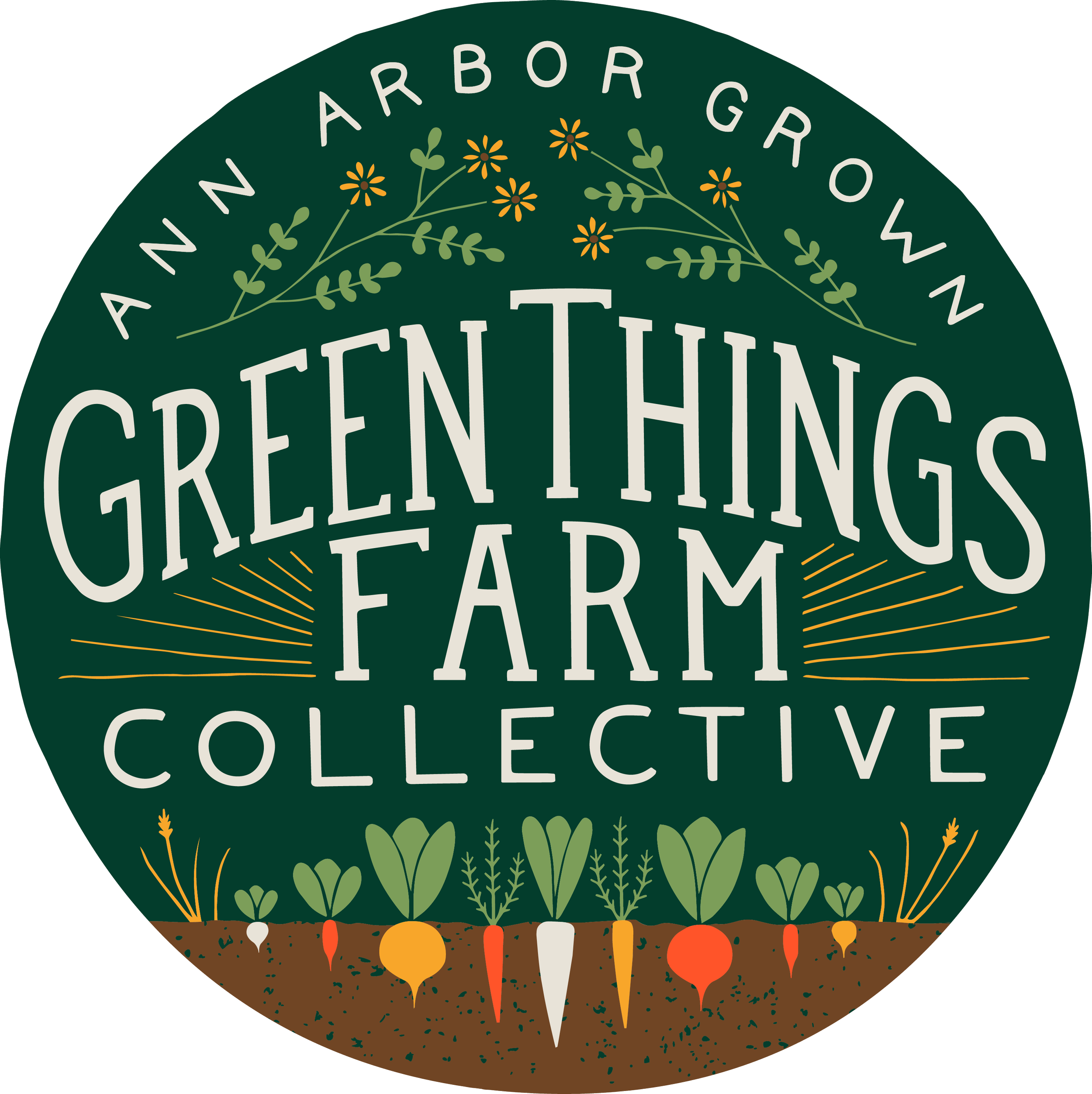**Note to potential beef share buyers: Our beef shares are currently available on a rolling basis. We have full, half, quarter, and eighth animal shares available, and when an animal is fully purchased by a member or multiple members is when we will schedule their slaughter date with our on-farm butcher, Damian Rivera. It will be a couple weeks after that when your beef will be ready to pick up. It is possible this process could take a couple months, depending on demand/how long it takes to sell each animal as well as our butcher’s schedule, but we will be sure to be in contact with you during this process to keep you updated on the status of your share. If you have any questions please email us at greenthingsfarmcollective@gmail.com.
Our cattle are special residents on the farm. All of the herd is born on the farm, will live their entire lives on the farm, and will be killed here as well. They graze on our rich organic pastures the majority of the year, and eat rich organic hay also produced here in the winter months. We treat them with respect, and honor them as an important part of our farm.
Cattle are one of the ways we are restoring our degraded soil. By rotationally grazing we are controlling weeds, adding fertility, and increasing soil life.
Starting in 2021 we are delighted to be processing our beef on-farm, which removes the unnecessary stress of transporting our animals to a far away facility, and ensures humane treatment to the very end of their lives.
When you buy meat from us what you are actually purchasing is a share of a live animal. When an entire animal is purchased, whether by an individual or a group of people, we are able to arrange for the slaughter and butchering of that animal (which happens here on the farm).
Thanks for supporting such an important part of our greater farm ecosystem!
Our Herd History…
In the spring of 2016 we purchased four pregnant Red Devon cows from an organic farm in mid Michigan. They have all now calved and voila! We have a real herd of cattle.
Devon is a breed that was originally developed over several centuries on the southwestern peninsula of England. They were valued for the production of both high quality beef and rich milk. They have very thick hides which gives them better resistance to external parasites and tolerate weather changes and extremes of temperature. The breed also had the reputation as an easy keeper, able to thrive on rough forage. The Pilgrims brought Devon cattle with them to New England beginning in 1623. The cattle also went west, as Devon oxen were the draft animals of choice on the Oregon Trail.
They have since separated into two separate lines--Milking Devons (primarily used for dairy) and Red Devons (primarily used for beef). Info from The Livestock Conservancy.
Summer of 2016 we purchased Charles, a British White bull.
According to the British White Cattle Association, the modern day breed of British Whites can claim direct links with the ancient indigenous wild white cattle of Great Britain, notably from the park at Whalley Abbey, Lancashire which was bought by Richard Assheton in 1553. From there the breed history intertwines with White Park Cattle until 1946 when they each formed their own registries.
They are known for :
Gentle Disposition
Naturally Polled (no horns)
Fertility & Ease in Calving
Efficient & Trouble Free
Superior Maternal Instinct
Excellent Milking Ability
Growth & Hardiness
Excellent flavor and tenderness
By crossing these two ancient breeds we will get offspring that have the best of both breeds! We have been managing our herd now for over 5 years and the animals continue to thrive and we continue to breed for health, vigor, and of course quality. In the fall of ‘21 we are bringing in a new British White bull that will begin his work as the herd sire in the summer of ‘22. It will be almost 2 years until we see his offspring and we can’t wait!




